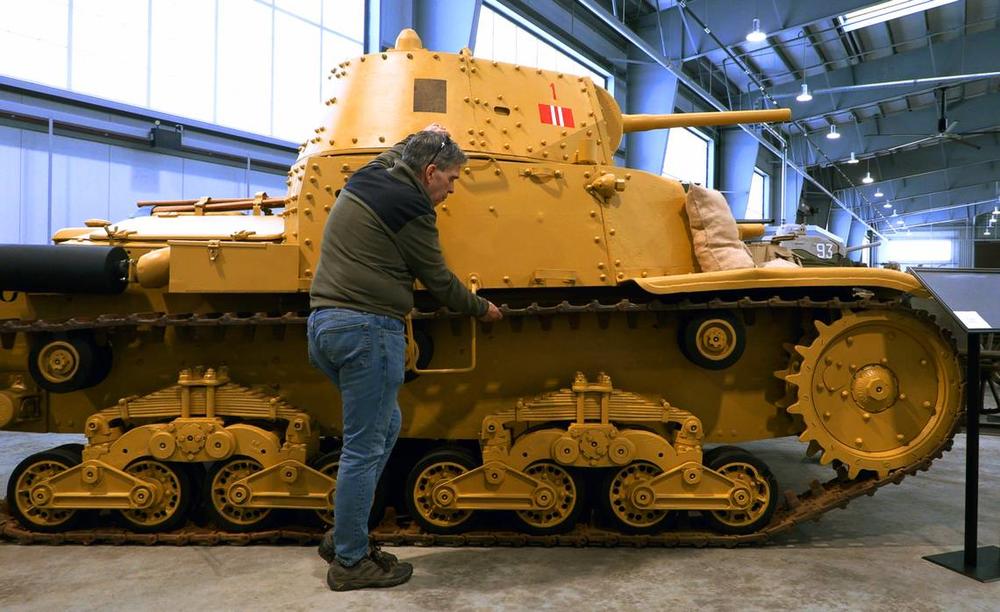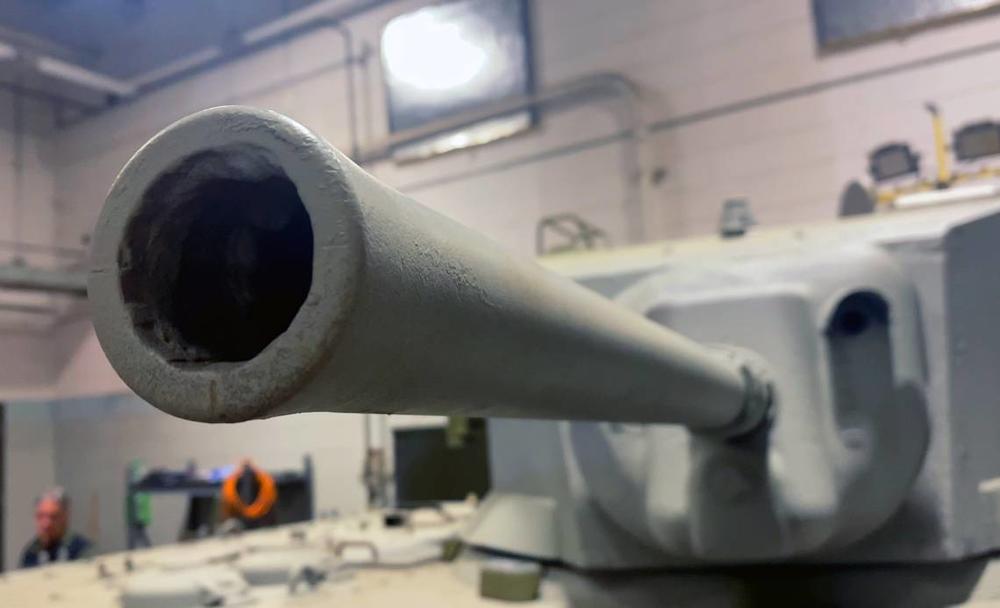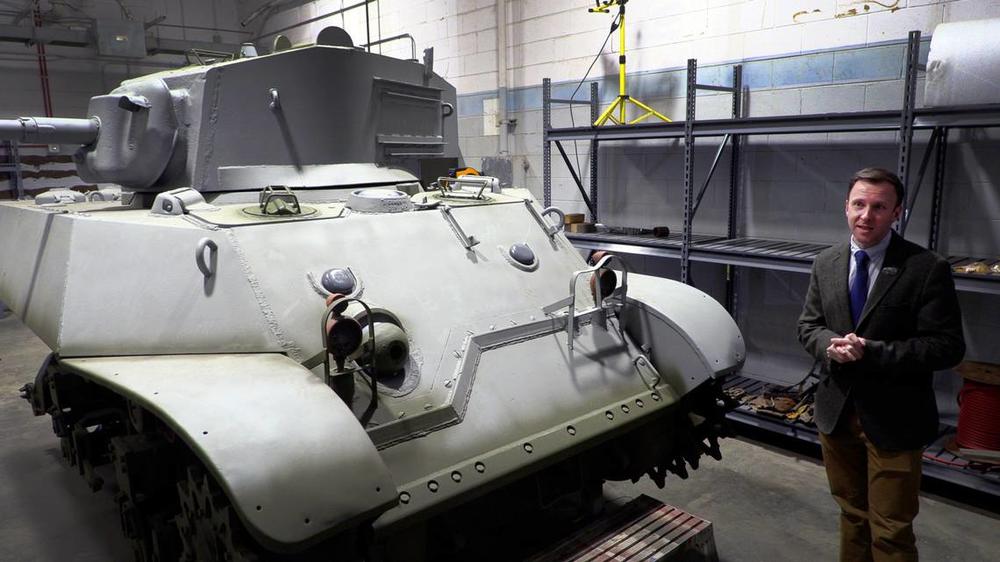
Caption
Robert Barlow, museum specialist and restoration shop manager with the U.S. Army Armor and Cavalry Collection at Ft. Moore, Georgia, talks about the restoration of this M 14/41 Italian tank, also called the Carro Armato M 14/41.
Credit: Mike Haskey / Ledger-Enquirer




